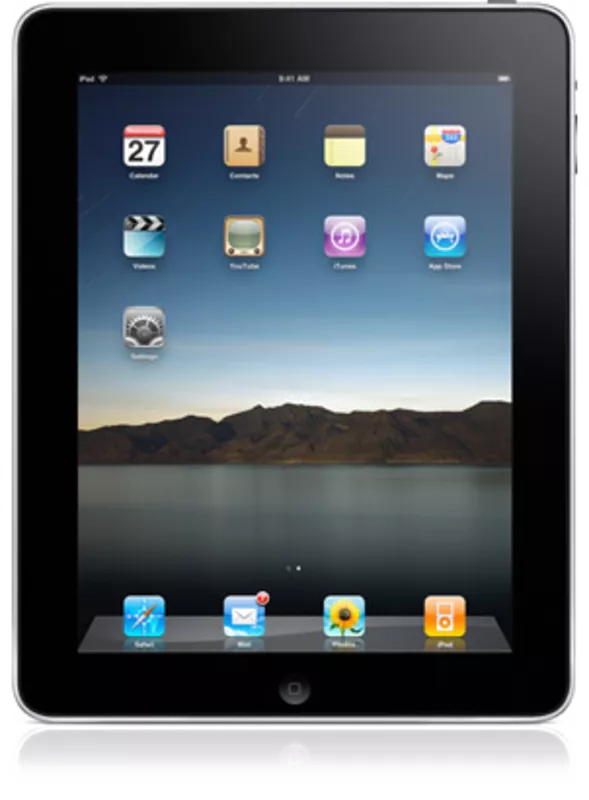
In case you didn't already know, the iPad will go on sale tomorrow. This event marks the beginning of the next great leap forward for computers. This shift takes computers from the "desktop" model of managing files, folders, and devices to a task-centric model which abstracts these things from the user. Many tech saavy people have been concerned and skeptical about the iPad exactly because of this reason, but I believe this is in fact why it is such an important shift. The plethora (1, 2, 3, 4, 5, 6, 7) of positive reviews of the iPad as well as the sheer number of impressive and innovative apps already bode well for this new model.
This article summarizes my opinion on this revolution and why it is so important. The one point I disagree with, however, is the claim that this will replace traditional "desktop" computers. I do not believe that to be the case because although these new devices are extremely intuitive and will become even more powerful, programmers will still have to develop on a more traditional platform. From a computer science perspective, this revolution will create a split in the world of computing. One half will be the traditional "desktop" machines used by computer scientists, those in the industry. and tech saavy individuals. The masses will use the devices that they're hungry for (especially David Letterman): an intuitive interface without defragging, viruses, and managing an ever increasing number of files and folders.
This is not to say that the "desktop" model will remain static. In fact, we are already seeing this model evolve with the new version of the Gnome Desktop and Gnome Shell. Gnome Shell completely changes the way a user interacts with their files, folders, and applications. The taskbar is no longer the central method for accessing applications - instead they are found by looking at the activites pane which displays all virtual desktops and open applications in expose style. For files, Ziegiest keeps track of recently used files and folders, groups them appropriately, and let's you search them in the activities pane. Similarly to the task-centric model, this also abstracts the filesystem (though it is still easily accessible if you want it).
I really believe Linux is the future of the "desktop" model because unlike Windows, Linux has not done away with previous models. In Linux, the command line is still accessible and as powerful as ever. This means tech users can accomplish tasks efficiently with it while other Linux users never need to see it. Windows unfortunately has a stripped down CMD which isn't much good for anything. Linux also continues to preserve the current "desktop" model through it's variety of window managers as well as Gnome to some extent. This, Linux brings the best of all three evolutions together.
I believe we'll see an increasing shift of computer time spent on these new devices like the iPad, but for those of us who are tech crazy, the older "desktop" model will always have it's use too.
